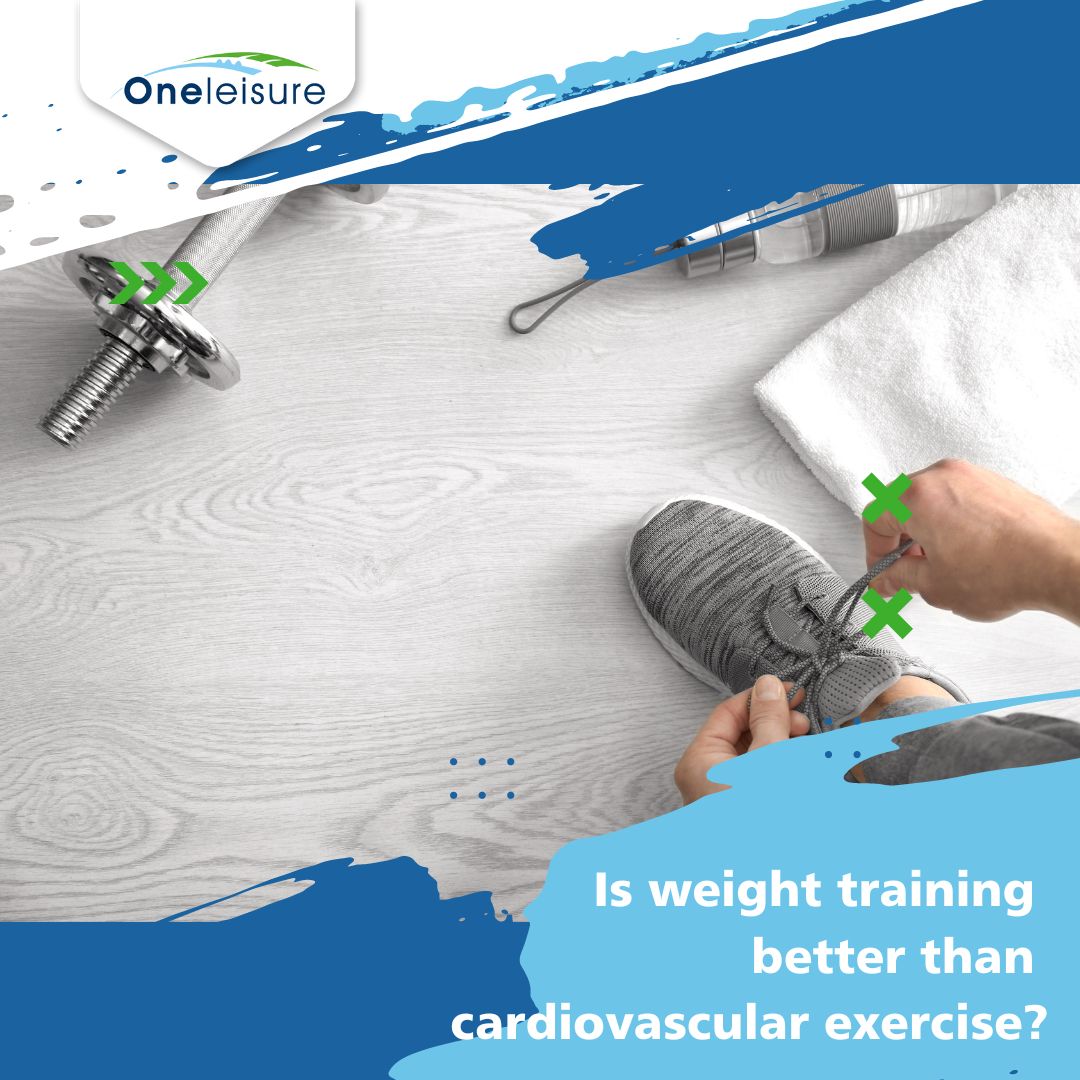
Is weight training better than cardiovascular exercise for fat loss?
Firstly, we should consider some of the major benefits of each of these types of exercise, before we look at which one might be better at helping you lose fat.
Cardiovascular exercise – this includes running, walking and cycling –increases your heart rate thereby improving your heart health.
Major benefits:
• Good for your heart: Cardiovascular exercise trains your heart to be able to pump oxygen more efficiently around the body as you build up your fitness levels. Exercise has also been found to lower blood pressure which has a positive effect on cardiovascular health.
• Helps to control appetite: This type of exercise improves blood circulation which has a knock-on effect on regulating metabolism, which can mean eating less.
• Burns calories: Depending on how intense the exercise is, cardiovascular training can burn a lot of calories which can help with fat loss. Once again, you have to decide what you want to achieve. If you are a beginner and your main aim is to get rid of body fat, then LISS (low-intensity steady-state cardio), such as walking on a treadmill, is one of the best ways to achieve this. If you are wanting to retain muscle mass while still encouraging the body to burn fat, then HIIT (high-intensity interval training), such as an aerobics class, maybe a good option.
• Reduces brain tissue loss: Cardiovascular exercise has been linked with the reduction of brain tissue loss – showing that it is just as important for mental health as it is for physical health.
• Boosts immune system: Studies have found that exercise helps to produce immunoglobulins – molecules made from white blood cells that help to protect our immune systems.
• A range of workouts to choose from: There are a range of cardiovascular workouts– making it easy to not get bored and therefore more sustainable in the long run.
Resistance training - any form of exercise where you lift or pull against resistance – also known as weight training or strength training. It includes circuit exercises, weight lifting and body weight exercises. All of these can burn fat, increase muscle mass and improve balance and coordination.
Major benefits:
• Builds muscle: Using weights places resistance on muscles. This means the tissue is broken down which then triggers the body to heal and rebuild the muscle which makes it grow – also known as hypertrophy. The more stress or resistance, in other words, the heavier the weight, the quicker the muscle tissue will grow. Our muscles need to be trained to the point of fatigue if we want to see changes.
• Boosts metabolism and fat loss: Having more muscle tissue increases our basal metabolic rate which means your body will be burning more calories in a day when at rest. If your goal is to lose body fat, being in a calorie deficit – burning more than you are taking in – is essential. Therefore, building more muscle will be helping you achieve this.
• Good for keeping bones healthy: Weight-bearing exercise has been shown to be helpful in keeping bones strong.
• Good for mental health: As with all forms of exercise, weight training can improve your mental health in many ways, including lowering the levels of the stress hormone cortisol. The sense of achievement it can give you when lifting a weight that was previously too heavy, is also a big motivational factor.
• Improves sleep: The drop in cortisol levels brought on by weight training can aid sleep, while pushing your muscles to their maximum, making you feel tired, can also help towards a better night’s sleep.
• Something for everyone: With many different classes to choose from, as well as gyms being equipped with a wide variety of equipment, there is very little chance of getting bored. There is something for everyone – all fitness levels as well as many different options to suit personal preference.
And the winner is …
Taking the above into consideration, it seems there is no real clear winner when it comes to deciding whether cardiovascular or weight training is best – particularly for fat loss.
Cardiovascular exercise might burn more calories, however, weight training will keep that going for longer – leading to a more sustained burn throughout the day. As muscle tissue is more active than fat, the more muscle we have, the more calories we will be able to burn, which will enable us to keep our body fat lower.
Weight training helps with building muscle mass and increases fat loss, however, cardiovascular training is equally important for losing weight and exposing the muscle tissue underneath, while in addition it is important for keeping your heart as healthy as possible. Depending on your personal goals, doing a variety of both each week is the best option. Try to find elements of both that you enjoy to ensure you stay on track and achieve what you have set out to do.
Disclaimer: The content of this page is not intended to be a substitute for professional medical advice, diagnosis or treatment. Always seek the advice of your physician with any questions you may have regarding a medical condition. References available on request.